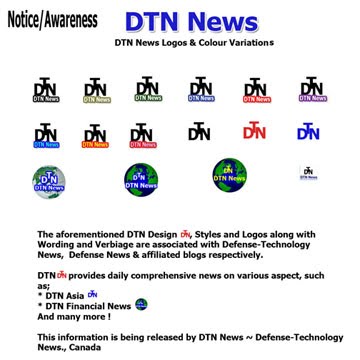 Source: DTN News - - This article compiled by Roger Smith from reliable sources By Peter Goodspeed - National Post
Source: DTN News - - This article compiled by Roger Smith from reliable sources By Peter Goodspeed - National PostIt is now obvious from Mr. Crosbie’s cable and the U.S. documents in the WikiLeaks trove that relations between Hamid Karzai, the Afghanistan president, and his foreign backers have become particularly poisonous.
Relations on a long list of issues continue to deteriorate, including disputed elections, corruption, a banking scandal, as well as the political and security situation.
The leaked Canadian memo is an independent confirmation of an earlier description of the corrupt and complex dynamics of the Afghan government made last year by Karl Eikenberry, the U.S. Ambassador to Afghanistan.

The picture painted by Mr. Crosbie of an Afghanistan President on the verge of potentially quitting his alliance with NATO comes at a time when Canada has just made a commitment to stay in the country for another three years. Canadian military trainers will head to Afghanistan after combat troops withdraw next year.
But as Mr. Crosbie reveals, despite NATO’s commitment to Afghanistan, relationships continue to worsen.
“We have gone through numerous crises as an international community in our relations with the Karzai government,” Mr. Crosbie wrote to Ottawa. “Rather than strengthening ties they have served to exacerbate and weaken them.”
Mr. Crosbie’s memo is not the first to highlight the disastrous relations with Mr. Karzai.
Mr. Eikenberry is a veteran victim of leaked diplomatic documents that highlight the controversial dynamics of U.S. foreign policy.
A year ago, when factions within the Obama administration were waging a fierce bureaucratic war over whether or not to send additional troops to Afghanistan, Mr. Eikenberry sent two cables to Washington arguing against the move.
In one he warned his superiors that Mr. Karzai “is not an adequate strategic partner” and said the Afghan president “continues to shun responsibility for any sovereign burden, whether defence, governance or development.”
In the other, Mr. Eikenberry cautioned against deploying sizable U.S. reinforcements, warning it would result in “astronomical costs” and would only deepen dependence of the Afghan government on the United States.
The two cables were leaked within days of Mr. Eikenberry sending them to Washington.
The leaks were an indication of one of the most bitter foreign policy battles being waged in the White House in decades.
But they also bluntly outlined the fault lines of a faltering U.S. foreign policy in Afghanistan.
Mr. Eikenberry, a retired U.S. Army Lieutenant General who once served as the top U.S. commander in Afghanistan, has repeatedly cautioned against adopting a counterinsurgency strategy that assumed an Afghan political leadership that was secure, self-sufficient and capable.
He has repeatedly depicted Mr. Karzai as being weak, out of touch and manipulative, more devoted to advancing his family and clan interests than in ruling well.
The recent spate of WikiLeaks documents show not much has changed.
One document talks of Mr. Karzai’s former vice-president, Zia Massoud, personally carrying $52-million in cash into Dubai last year. Others describe Mr. Karzai’s brother Ahmed Wali Karzai, as the “Godfather of Kandahar”.
Still other reports discuss constant clashes between the U.S. Embassy and Mr. Karzai, such as when he released 150 dangerous detainees without trial and when he pardoned suspected drug dealers because they were linked to his political cronies.
And that’s at a time when the Obama administration was making a concerted effort to get along with Mr. Karzai.
The WikiLeaks documents portray Mr. Karzai as corrupt, duplicitous and paranoid. Canada’s diplomats apparently share those assessments.
Meanwhile, disputes and protests over corruption allegations have meant that Afghanistan’s 249-seat parliament has been unable to meet since elections in September.
Mr. Karzai has threatened to scrap the poll entirely, after the Independent Election Commission disqualified 24 early winners, who included some of the president’s supporters.
Yet another scandal is brewing around the Kabul Bank, Afghanistan’s biggest privately owned bank, which, according to Mr. Crosbie’s cable is now expected to have losses ranging from US$500-million to US$850-million.
The bank’s former chairman, a Karzai family friend, is said to have given more than US$150-million worth of villas and condominiums to members of the Afghan elite, including Mahmood Karzai, a brother of the president.
In yet another controversial move, Mr. Karzai has set a December deadline for the dissolution of all private security firms in Afghanistan, in a bid to force NATO supply convoys to rely on Afghan government protection.
The decision, however, will hurt international development firms that rely on private guards to protect workers building schools, roads and agricultural projects.
Without adequate security many of those firms, which are responsible for more than US$2.5-billion in aid, say they will be forced to shut down.
Hopes of a peaceful, negotiated settlement to problems and the rebuilding of Afghan institutions like the judiciary and security forces shattered by three decades of war grow fainter by the day.
“With his legitimacy in question and his hold on power more tenuous by the day, Karzai now spends much of his time juggling the competing interests of his family, regional commanders, wealthy powerbrokers and international stakeholders,” the International Crisis Group said in a report, Afghanistan: Exit vs Engagement.
“This precarious balancing act in which corruption and patronage reign supreme has neutralized the president’s potency and hindered government reform.”
Norine MacDonald, president of policy research group the International Council on Security and Development (ICOS) added, “The international community has been very elastic about the process of democracy in Afghanistan, and it is a good question how far this can be stretched before the whole pretext snaps.”
*This article is being posted from Toronto, Canada By DTN News ~ Defense-Technology News, contact: dtnnews@ymail.comMORE FROM PETER GOODSPEED
Goodspeed Analysis: Fighting a faceless enemy
Goodspeed Analysis: North Korea bringing bluster, not Armageddon
Goodspeed Analysis: Is love enough for a royal marriage?
Norway Progess Party leader Siv Jensen in her own words
Goodspeed Analysis: Is Jensen what Norway wants?
 DTN NEWS ON TWITTER (30 SUBJECTS)
DTN NEWS ON TWITTER (30 SUBJECTS)





No comments:
Post a Comment